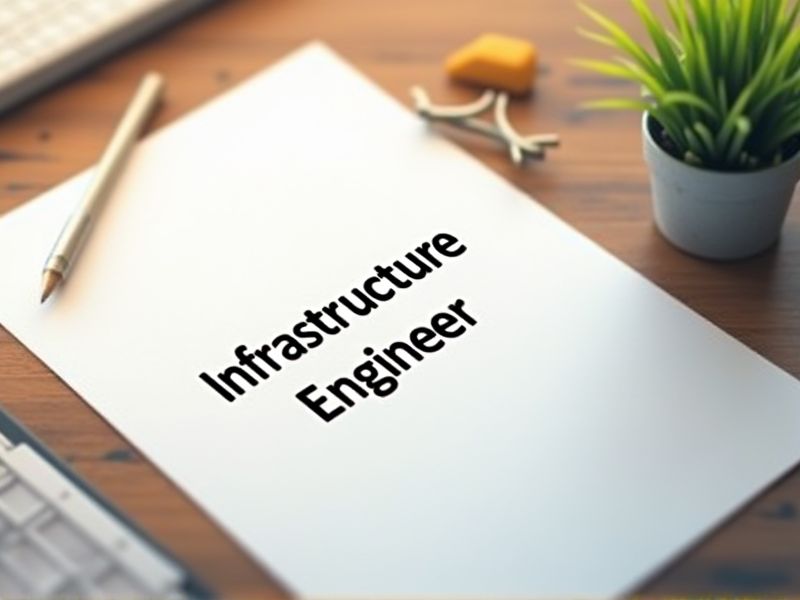
Infrastructure Engineers are essential for designing and maintaining the backbone of IT environments; their expertise ensures network resilience and system efficiency. Certifications validate their technical skills and knowledge, ensuring they can tackle complexity and implement robust solutions. As technology evolves, possession of certain credentials demonstrates an engineer's commitment to staying current and mitigating risk. Some essential certifications are crucial for advancing as an Infrastructure Engineer.
CompTIA A+
CompTIA A+ is often a foundational requirement because it validates essential IT skills critical for troubleshooting and problem-solving. Infrastructure Engineers rely on core competencies in hardware and operating systems, which this certification covers thoroughly. Familiarity with security practices, emphasized in the CompTIA A+ exam, ensures adherence to IT governance policies. Employers value the certification because it demonstrates a solid understanding of best practices in maintaining and supporting complex IT systems.
CompTIA Network+
Infrastructure Engineers require a strong foundation in networking concepts, which CompTIA Network+ provides. This certification validates knowledge in managing and troubleshooting networks, essential for designing and maintaining robust infrastructure. Standard protocols and network architecture understanding gained from Network+ ensures efficient, scalable system designs. Companies often list Network+ as a qualification, reflecting its relevance in meeting industry standards for infrastructure roles.
CompTIA Security+
The CompTIA Security+ certification provides a strong foundation in security concepts, essential for Infrastructure Engineers responsible for safeguarding network systems. An Infrastructure Engineer with this credential demonstrates proficiency in identifying and mitigating security threats, which directly enhances the reliability of system infrastructures. Employers often prefer candidates with Security+ as it validates critical IT security skills in real-world scenarios. Holding this certification can lead to improved job prospects and potential advancement within an organization focusing on secure infrastructure development.
Microsoft Certified: Azure Administrator Associate
The Microsoft Certified: Azure Administrator Associate certification equips Infrastructure Engineers with the skills to manage and monitor Azure environments effectively. As cloud adoption increases, this certification validates the ability to implement, manage, and monitor identity, governance, storage, compute, and virtual networks in a cloud environment. Organizations leveraging Azure look for certified professionals to ensure their cloud infrastructures are secure and optimized. This credential enhances an engineer's expertise and boosts confidence in handling cloud-based infrastructure tasks.
Cisco Certified Network Associate (CCNA)
Obtaining a Cisco Certified Network Associate (CCNA) certification equips Infrastructure Engineers with essential networking knowledge, providing a robust foundation in network fundamentals and protocols. This certification enhances an engineer's ability to design, implement, and troubleshoot a variety of networking configurations, aligning with the practical demands of the role. Employers often prefer or require CCNA-certified professionals because this credential signifies a recognized level of technical proficiency and reliability in managing network infrastructures. The growing complexity of network systems necessitates a deep understanding of Cisco's networking products and solutions, which is effectively addressed through CCNA training.
AWS Certified Solutions Architect - Associate
The AWS Certified Solutions Architect - Associate certification enhances an Infrastructure Engineer's understanding of AWS cloud architecture, promoting effective system design and implementation. Certification equips engineers with the skills to identify and deploy secure, robust applications on AWS technologies, aligning with industry standards. Mastery of AWS services through this certification leads to optimized resource management, resulting in cost and operational efficiency. Cultivating this expertise supports problem-solving capabilities and innovation in cloud infrastructure development.
VMware Certified Professional - Data Center Virtualization (VCP-DCV)
Infrastructure Engineers benefit from the VMware Certified Professional - Data Center Virtualization (VCP-DCV) as it validates their ability to handle complex virtualization technologies. The certification ensures engineers can efficiently manage and optimize data centers, leading to reduced operational costs and increased system reliability. Organizations often seek VCP-DCV certified professionals to enhance their cloud and virtualization strategies, thus driving demand in the job market. The certification also equips engineers with the latest technical skills, increasing their competitive edge in rapidly evolving IT environments.
Red Hat Certified Engineer (RHCE)
Achieving the Red Hat Certified Engineer (RHCE) credential demonstrates a high level of proficiency in managing Red Hat Enterprise Linux environments, which form a substantial part of many IT infrastructures. Infrastructure Engineers are often required to automate IT tasks, and the RHCE certification provides essential skills in scripting and automation using Ansible--a key tool in efficient system management. Employers view RHCE certification as a benchmark for technical competency, enhancing job prospects in organizations relying heavily on Linux-based systems. The structured learning pathway of RHCE equips Infrastructure Engineers with comprehensive problem-solving capabilities, crucial for maintaining and optimizing IT systems at scale.
ITIL Foundation Certification
The ITIL Foundation Certification equips Infrastructure Engineers with a standardized framework for IT service management, fostering enhanced efficiency and consistency in service delivery. Understanding ITIL principles can lead to improved incident response times and reduced downtime, which translates into better user satisfaction. Additionally, employers often prioritize candidates with ITIL certification for roles focused on maximizing infrastructure performance and managing risk. Certification in ITIL can also facilitate improved communication and collaboration between IT teams and other business units.
Google Cloud Certified - Associate Cloud Engineer
Obtaining a Google Cloud Certified - Associate Cloud Engineer certification equips an infrastructure engineer with essential skills for implementing infrastructure in Google Cloud. This certification validates proficiency in managing Google Cloud-based infrastructure, crucial for building and maintaining scalable, secure systems. The structured certification path ensures engineers are adept at utilizing Google Cloud tools, vital for optimizing resource allocation and reducing operational costs. As organizations increasingly adopt cloud services, possessing this certification differentiates professionals in a competitive job market, enhancing employability and career growth.
Summary
When you, as an Infrastructure Engineer, obtain certifications, you enhance your technical credibility and expand your career opportunities. This often leads to a deeper understanding of advanced technologies, allowing you to implement efficient systems. Organizations may recognize your certified skills, leading to potential salary increases or promotions. Certified expertise can position you as a leader in deploying and managing infrastructure solutions effectively.
